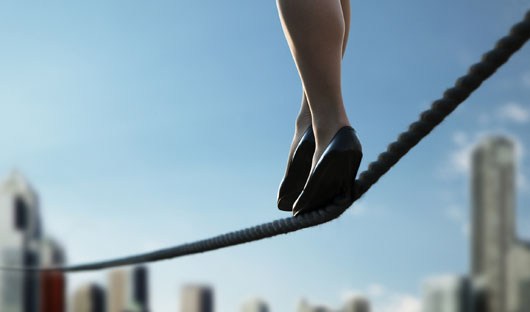Teachers Walk a Fine Line in Discussing Political Opinions

by Vendela Krenkel ‘20
A Florida middle school teacher was caught secretly promoting white nationalist views on her podcast under a pseudonym. A history teacher in California was recorded calling the U.S. army “the lowest of the low” during a discussion about the outcome of the war in Afghanistan and a California social studies teacher compared Trump to Hitler. These educators were removed from their classrooms, but not before preaching their views to impressionable students.
The controversy over whether teachers should express their political views in the classroom is one that is increasingly relevant at MCPS schools including Sherwood. Sherwood’s teachers tend to lean toward the left politically, which can lead to a feeling of alienation among students that disagree with whatever is being suggested.
“It is the teacher’s role to present a variety of perspectives, but teachers have bias, so it is unfair for them to explicitly mention their views,” said AP U.S. History teacher Beth Shevitz.
The Supreme Court in Pickering v. Board of Education (1968) ruled that teachers are protected under freedom of speech to speak about their views on public controversies. It has been left up to school districts to create their rules for the extent to which educators are allowed to express their views in school.
In an email to MCPS principals regarding protests for gun control and safety, Deputy Superintendent Kimberly Statham wrote, “It is not appropriate for school staff to … use their professional contact with students to further personal political aims.” MCPS staff were prohibited from participating in walkouts during times when they have a class to teach. “A teacher may express his or her opinion … provided that the total presentation is essentially balanced and fair … MCPS staff should strive to promote tolerance for the opinions of others and respect for the right of all individuals to have differing opinions,” stated Statham.
The presentation of lessons with bias potentially affects students’ learning experiences, and whether it be consciously or subconsciously, high schoolers may adopt these views because their instructor has studied the subject and has likely come to a learned conclusion. This can be easy to overlook if students agree with their teachers’ viewpoints, but it can be uncomfortable if theydon’t.
“As students, we should be able to learn unbiased information and then make our opinions based off of that,” said sophomore Lauren Loebach.
Most teachers can agree that the best education is one in which both sides of an argument are equally presented so the student can formulate their own opinion. “We have to remain unbiased. We can talk about hot topics, but shouldn’t discourage any of the [opposing viewpoints] involved,” said social studies teacher Michael King.
If an issue applies directly to the teacher, should they have the right to be able to speak up for themselves? Some have discussed President Trump’s suggestion to arm teachers in schools and whether they find this outrageous or sensible. The MCPS policies suggest that teachers can express their opinions as long as they create an environment in which students also can share their views without fear of retribution. The guidance found in the MCPS Employee Code of Conduct is to avoid preferential treatment and discrimination of students, the consequences of this including verbal or written warning, written reprimand, suspension and termination.